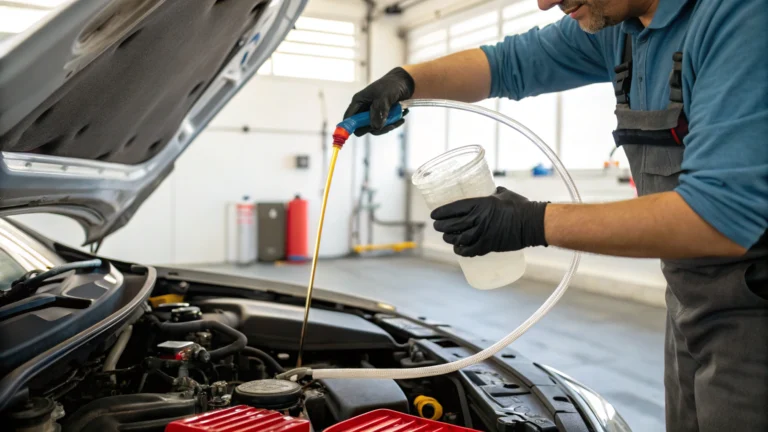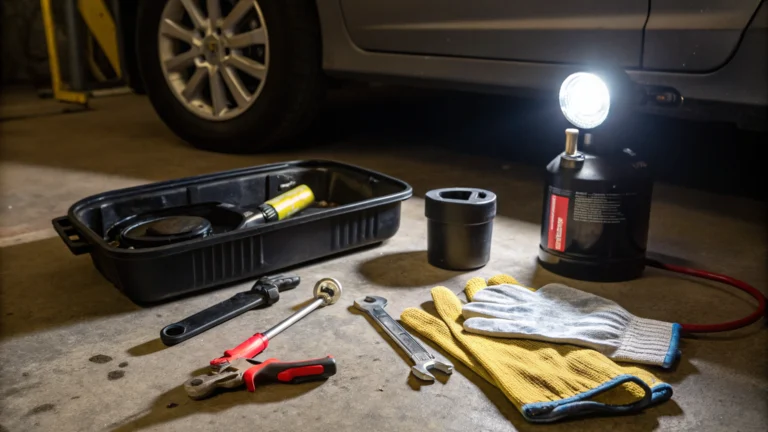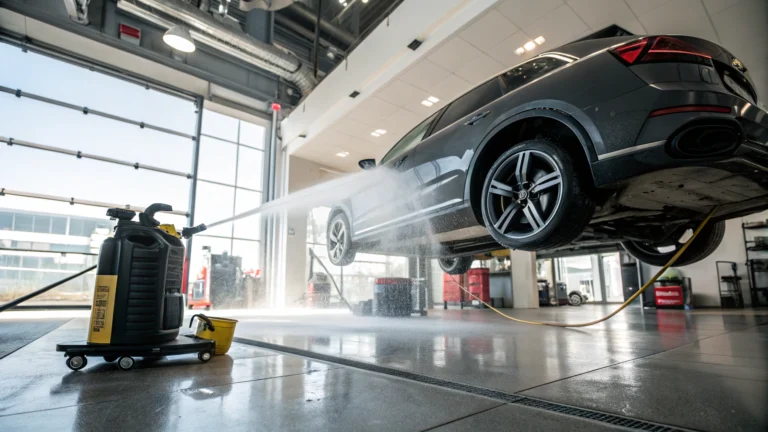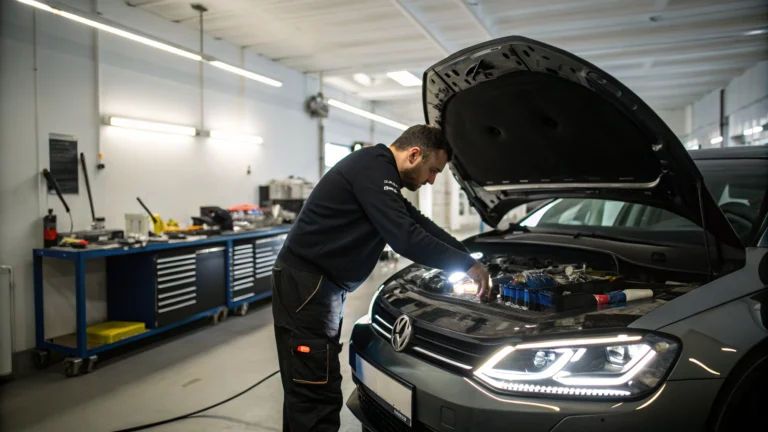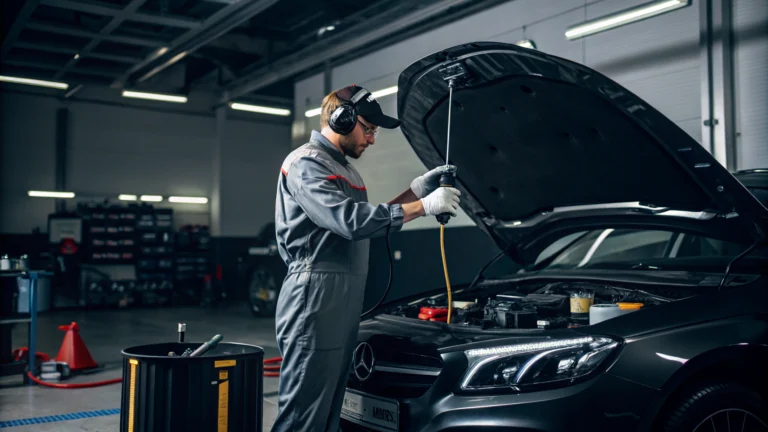Stop Alarming Car Shaking: 7 Causes & How to Fix Them Fast
Table of Contents
Car shaking while driving is a common issue many vehicle owners face, and it can be both alarming and uncomfortable. Whether it’s a mild vibration while idle or severe shaking at high speeds, it’s a symptom that signals an underlying issue needing attention. Understanding the root causes is essential for maintaining your vehicle’s safety and performance.
This article will delve into the causes of car shaking and provide practical solutions to address these issues effectively. By identifying the specific problem, you can resolve it and get back to a smoother, more enjoyable driving experience.
What Causes a Car to Shake While Driving?
When your vehicle shakes, the key to diagnosis is noting when the shaking happens—at idle, during acceleration, at highway speeds, or when braking. These different patterns point to different problems.
Tire and Wheel Problems
Tire issues are among the most common causes of car shaking, particularly at certain speeds.
- Unbalanced Tires: One of the most common causes, unbalanced tires create an uneven distribution of weight. This becomes particularly noticeable at highway speeds (typically 55-70 mph), causing the steering wheel to vibrate.
- Tire Damage or Uneven Wear: Bulges, flat spots, or separated treads create uneven surfaces that cause shaking. Similarly, bent wheels from hitting potholes can create persistent vibration problems.
- Wheel Alignment Issues: Improper alignment causes uneven tire wear and can result in steering wheel vibrations, particularly when driving at moderate to high speeds. It can also cause the car to pull to one side.
Worn or Damaged Suspension Components
Your car’s suspension system keeps your ride smooth. Problems here can lead to concerning shaking, especially over bumps or rough roads.
- Worn Shocks or Struts: These components dampen road impact. When they fail, your car may bounce excessively after bumps and shake consistently on rough roads.
- Ball Joint Issues: Ball joints connect the control arms to the steering knuckles. When they wear out, they create looseness in the suspension that translates to vibrations and clunking noises.
- Control Arm Damage: Bent or damaged control arms, or worn bushings, affect wheel alignment and suspension geometry, leading to vibration and handling issues.
Engine and Drivetrain Issues
Engine-related shaking is particularly noticeable when your car is idle or accelerating.
- Misfiring Engine: When your engine isn’t firing correctly on all cylinders, it creates an imbalance that causes vibration. This might happen due to worn spark plugs, damaged ignition coils, or clogged fuel injectors. You’ll often notice rough idling and hesitation during acceleration.
- Broken Motor Mounts: Motor mounts connect your engine to the vehicle’s frame and absorb engine vibrations. When they wear out or break, they transfer engine movement directly to the car’s body, resulting in noticeable shaking, especially at idle.
- Dirty Air or Fuel Filters: A clogged air filter restricts airflow to the engine, creating an improper air-fuel mixture that can cause the engine to run roughly and shake.
- Driveshaft or Axle Issues: A damaged or unbalanced driveshaft can cause intense vibration through the floor of the car. Worn CV joints and axles can also cause shaking, especially when turning or accelerating.
Brake System Issues
If your car shakes primarily when braking, the issue likely lies within your brake system. Warped brake rotors are a frequent culprit, causing pulsations through the brake pedal and steering wheel during braking. Understanding how long brake pads last and performing regular maintenance can prevent these issues from developing.
How to Diagnose and Fix Car Shaking
Now that we’ve identified potential causes, let’s look at practical solutions to address car shaking problems. Before seeking professional help, you can perform some basic diagnostics to help identify the source of your car’s vibrations, such as visually inspecting tires and watching for engine misfire symptoms like a check engine light or reduced power.

Solutions for Tire and Wheel Issues
Tire Balancing: This affordable service redistributes weight around each tire and wheel assembly. Most tire shops charge $10-20 per tire, making it a cost-effective fix for high-speed vibrations.
Tire Rotation and Replacement: Regular rotation every 5,000-6,000 miles extends tire life and prevents uneven wear. If tires are damaged or worn beyond safe limits, replacement is the only solution.
Wheel Alignment: A proper alignment ensures all wheels are positioned correctly. This service typically costs $75-150 but saves money long-term by preventing uneven tire wear and improving fuel efficiency.
Repairing Suspension and Steering Problems
Replace Worn Shocks or Struts: These components typically last 50,000-100,000 miles. Replacement improves not just comfort but also handling and braking performance.
Ball Joint and Control Arm Repairs: Worn steering and suspension components like tie rod ends, ball joints, and bushings should be inspected and replaced as needed. These repairs are essential for safety when wear is detected.
Fixing Engine-Related Shaking
Tune-Up Services: Regular maintenance like replacing spark plugs, wires, and filters can resolve many engine vibration issues. Most vehicles benefit from a tune-up every 30,000 miles or according to your manufacturer’s recommendations.
Replacement of Motor Mounts: If engine vibrations are transferring to the vehicle body, have a mechanic inspect and replace damaged motor mounts. This relatively straightforward repair can dramatically reduce shaking at idle.
Is It Safe to Ignore Car Shaking?
The short answer is no – vibrations and shaking should be addressed promptly. Car shaking isn’t just about comfort; it often signals problems that can lead to:
- Reduced Safety: Vibrations from worn suspension components or misaligned wheels can compromise your ability to control the vehicle, especially in emergency situations.
- Cascading Damage: Small issues causing vibration often lead to more significant problems. For example, a wheel alignment issue can cause uneven tire wear, which then creates more severe vibrations and potentially damages suspension components.
- Higher Repair Costs: Addressing the root cause of shaking early typically costs less than waiting until multiple components are damaged.
Ultimately, vehicle vibrations are a key indicator of your car’s health. Addressing them isn’t just about comfort; it’s a critical aspect of road safety. For comprehensive vehicle safety guidelines and recall information, it’s always wise to consult official resources like the National Highway Traffic Safety Administration (NHTSA).
The bottom line: car shaking almost always indicates a problem that will worsen over time. Regular maintenance and promptly addressing any unusual vibrations will keep your vehicle running smoothly, safely, and economically.
As an Amazon Associate we earn from qualifying purchases.
Shop Related Products:
- Find Wheel Balancing Weights on Amazon
- Find Tire Pressure Gauge on Amazon
- Find Wheel Alignment Tool on Amazon
- Find Brake Pads on Amazon
- Find Brake Rotors on Amazon
- Find lug wrench on Amazon
- Find torque wrench on Amazon
Frequently Asked Questions
Why is my car shaking while driving?
Common causes include unbalanced tires, misaligned wheels, or engine issues. Tire problems typically cause shaking at higher speeds (55-65 mph), while engine-related vibrations are more noticeable during idle or acceleration. Suspension issues can cause shaking on rough roads. The timing and conditions of the shaking provide important diagnostic clues.
Can engine problems cause shaking?
Yes, misfiring, bad spark plugs, or faulty motor mounts can lead to vibrations. Misfiring engines create an imbalance that causes shaking, particularly at idle or during acceleration. Worn or broken motor mounts fail to properly dampen engine vibrations, transferring them to the vehicle body. Fuel system issues like clogged injectors can also create rough running conditions that manifest as shaking.
Is it safe to drive a shaking car?
Not always; shaking can indicate serious issues and should be inspected. Vibrations from suspension problems or wheel issues can compromise vehicle control, especially in emergency situations. Even minor shaking often signals developing problems that will worsen over time and potentially lead to more expensive repairs. For safety and to prevent cascading damage, have any unusual vibrations professionally diagnosed as soon as possible.

